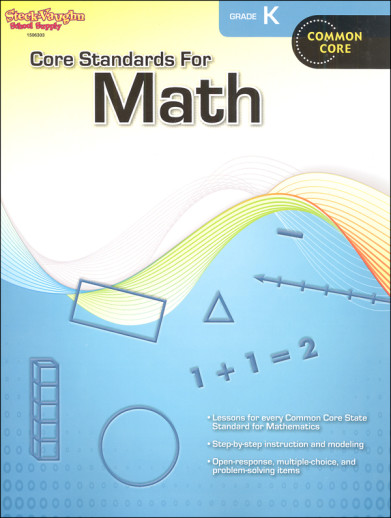We use cookies to make your experience better. To comply with the new e-Privacy directive, we need to ask for your consent to set the cookies. Learn more.
Core Standards for Math: Grade K
Now this series is something any homeschooling parent may use even though it is Common Core. Harcourt has provided two-page lessons that cover every content standard per grade level in the Common Core State Standards for Mathematics. The first page introduces the concept with step-by-step instruction and modeling each sequence - perfect for checking a student's understanding through open-ended practice items. The second page includes multiple choice practice items as well as problem-solving items. Each book starts with a brief explanation and overview of the CCSS standards. Lessons are organized by content standard and could be done in a start to finish order - or standard by standard if you want to coordinate with your primary math program. The consumable books (newsprint) include an answer key with reduced student pages in the back. Also in the back of each book is a complete list of the CCSS for the grade level. These lessons would be easy to do each day as a "daily warm up" or even as your practice work if you're using a more relaxed math program. Regardless of what you think about Common Core, this series will ensure your kids are measuring up to these standards, which is a good way to prepare for any standardized tests you may be required to take. 265 pgs, pb ~ Janice

